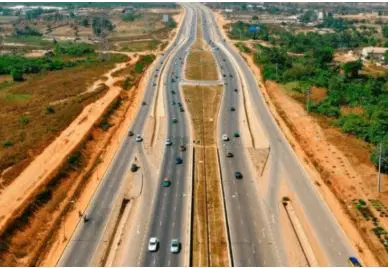Highway Construction and Environmental Cost-Benefits

Progress on the Coastal Highway: At What Cost to Our Economy & Environment
By Baba Isimi FNIA
One of the most ambitious projects of the current Nigerian government is the multi-trillion-naira Coastal Highway and Rail System, stretching from Lagos through Port Harcourt to Calabar. While proponents hail it as a monumental infrastructure leap, the project has been mired in controversies, from exorbitant costs to an opaque contractual process. Yet, beyond the financial debates, a more pressing question looms: Is it necessary to bulldoze a 10-lane superhighway along Nigeria’s pristine coastline, sacrificing fragile ecosystems in the process?
The Promise of Development
Supporters argue that the coastal highway will boost economic growth, improve connectivity, and spur real estate development along Nigeria’s southern coast. The government envisions it as a catalyst for trade and tourism, linking key cities and reducing travel time. There is merit in this argument; Nigeria desperately needs modern infrastructure to unlock its economic potential.
However, the critical flaw in this reasoning is the assumption that such development must come at the expense of Nigeria’s natural heritage. The insistence on routing the highway directly along the coastline, rather than a few kilometers inland, raises serious concerns about priorities.
The Environmental Catastrophe in the Making
Nigeria’s coastline is home to some of the last remaining mangrove forests, marshlands, and untouched beaches. These are ecosystems that serve as natural barriers against erosion, support marine life, and sustain local communities. The proposed highway threatens to:
– Destroy mangrove forests, which are vital for carbon sequestration and flood prevention.
– Displace wildlife, including endangered species that depend on these habitats.
– Accelerate coastal erosion, as construction and increased human activity destabilize fragile shorelines.
– Pollute marine environments through runoff and industrial activity linked to the highway.
The question is not whether Nigeria needs infrastructure – it does – but whether this particular route is the best way to achieve it.
A Smarter Alternative: Inland Routing
A more sustainable approach would be to construct the highway 2-5 kilometers inland, preserving the coastline while still enabling development. This alternative would:
– Protect ecosystems by avoiding direct damage to beaches, mangroves, and wetlands.
– Allow for controlled coastal development, where prime real estate can be planned sustainably rather than being bisected by a highway.
– Reduce long-term maintenance costs as inland routes are less vulnerable to erosion and storm surges.
Countries like the Netherlands and the U.S. have demonstrated that coastal infrastructure can be built responsibly, balancing economic needs with environmental preservation. Why can’t Nigeria do the same?
The Controversial Cost Factor
The project’s staggering cost, reportedly in the trillions of naira, has also drawn scrutiny. Given Nigeria’s debt burden and pressing social needs, such expenditures demand rigorous justification. If the primary benefit of highway construction is faster travel between coastal cities, could it still be achieved at a lower financial and ecological cost with an inland alignment?
A Call for Reevaluation
At any time, before the bulldozers roll in to destroy things, the government must:
- Conduct an independent environmental impact assessment*; one that is transparent and involves local communities.
- Explore alternative routes that minimize ecological destruction.
- Justify the exorbitant cost with clear, measurable economic benefits.
Development should not mean destruction. Nigeria can build for the future without sacrificing its natural heritage. The coastal highway, as currently planned, risks being a short-term gain with irreversible long-term consequences. It’s time to pause, rethink, and choose a smarter path forward.
Baba Isimi FNIA
- An Abuja-based Environmental Advocate & Public Affairs Analyst






